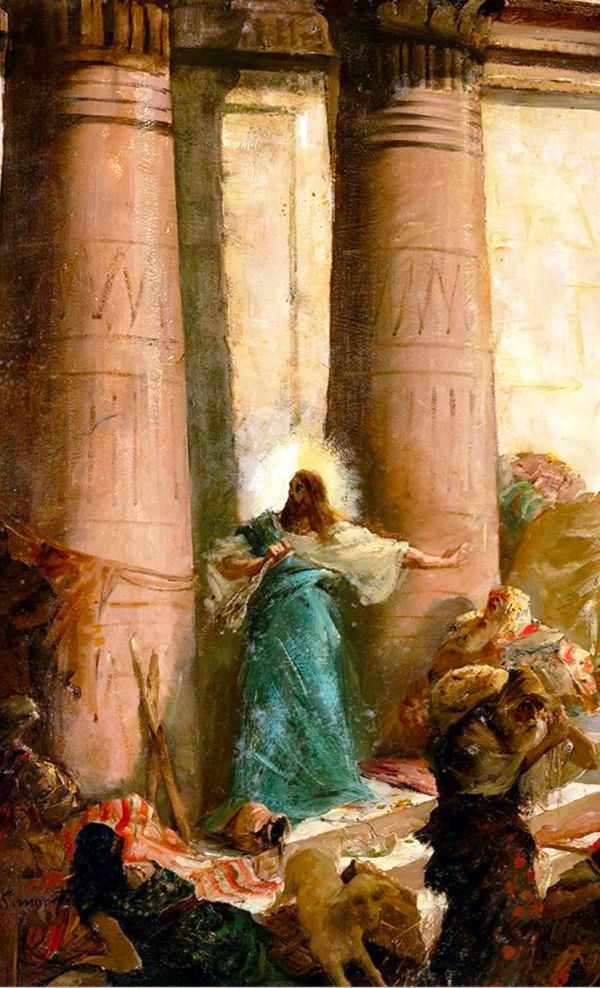Little House of God? We no longer haggle
(Lk 19:45-48)
The teaching of Jesus in the sacred place is presented by Lk as enduring: «He was teaching every day» (v.47). Main topic: the Grace.
So over time we learn conviviality: encouraged to dialogue with our personal, unrepeatable Vocation, which captivates because it really corresponds.
And the intimate conviction is alone, incomparable, precious energy of transformative valence - which leads to not withdrawing from oneself, nor disregarding the reality of sisters and brothers.
Rather it induces to make Exodus, explore new conditions of being, transfigure perception into blissful action.
Hunting the false friends of religiosity, the Lord is not so much oriented to compensate the purity of the Place, nor to mend and revive the enamel of the sober original cult - as Prophets wanted.
He renders a holy service not to ancient God, but to people - by that system [or tangle] made totally unaware of their vocational dignity: only chained, milked, and sheared.
The first Tent of God is therefore humanity itself, its beating heart - not a delimited space:
Upon entering Jerusalem, the Master takes possession of the heavenly House - which is not the Temple, but the People.
He doesn’t teach to enter into habitual and formal armor accepted by the contour, but distant from persons.
Rather, He stimulates us not to restrain our true nature with costume hoods, according to which "it’s never enough".
Our inner world should not be hysterically regarded as a dangerous stranger.
Innate roots and our natural energy have the right to flourish and prevail over common manners or ideas: they are an experimental trace of the Divine.
In them there is a Personal bond, which wins every intimate torment.
We must therefore change our approach. He himself is the essential point of the Eternal’s worship.
In this light of Person in his Person, everyone can embrace proposals that are not of others and intruders; wich will not turn out to be ballasts.
The phantasmagorical ancient culmination is becoming periphery, it’s decaying. And to find ourselves, we have difficulties.
An opportunity not to be missed to proceed in a living and singular way, in tune with an ever new teaching on unprecedented Love, which takes our step.
It’s the burning Appeal of «the Mount», which focusses on ‘passion’: precisely on Desire.
No more a strict call to the "no" of great appearances - but finally Listening to the Voice in the soul, which amazes (v.48).
Authentic sacred of the temple.
With what does not correspond, even from a cultural, social and spiritual point of view, we no longer haggle.
[Friday 33rd wk. in O.T. November 22, 2024]












